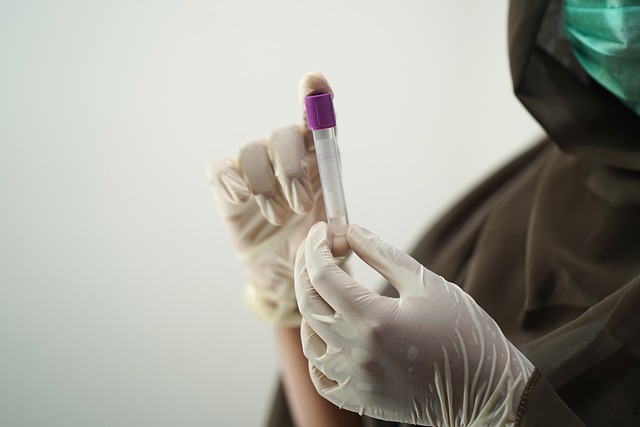A testosterone blood test is a simple yet vital tool for assessing male health, particularly hormone levels. It helps detect conditions like hypogonadism and polycythemia early on, enabling men over 35 to take proactive measures regarding their energy, libido, and overall well-being through prompt intervention if low T (low testosterone) is identified.
Discover the power of early detection with a complete testosterone blood test. Understanding testosterone—its roles in physical and mental well-being—is crucial for recognizing potential issues. Knowing when and why to get tested is essential, as timely intervention can significantly impact outcomes. This article guides you through the process, explaining the functions of testosterone and providing insights on when a blood test is recommended. Take charge of your health; find out more about the testosterone blood test.
Understanding Testosterone and Its Functions
Testosterone is a hormone that plays a pivotal role in various bodily functions, primarily in males. It is often associated with sexual development and libido but also influences muscle mass, bone density, energy levels, and overall well-being. This powerful hormone acts as a key regulator, stimulating protein synthesis and promoting the growth of muscle and bone tissue. Additionally, it contributes to red blood cell production, enhancing oxygen delivery throughout the body. Understanding these functions is essential when considering the importance of a testosterone blood test for early detection of potential issues.
A testosterone blood test is a diagnostic tool that measures the level of this hormone in your bloodstream. It provides valuable insights into your overall health and can help identify conditions such as low testosterone (hypogonadism), where the body does not produce enough of this hormone, or conditions like polycythemia, marked by an abnormal increase in red blood cells, which can be associated with elevated testosterone levels. Early detection through such tests enables timely intervention and management, ensuring optimal health outcomes.
When and Why to Get a Testosterone Blood Test
Many people are unaware that a simple blood test can provide valuable insights into their overall health, particularly when it comes to hormone levels. One such crucial test is the testosterone blood test, which should be considered by men as part of their regular health checks, especially if they’re experiencing any concerning symptoms. Low testosterone, or low T, is a common issue that often goes undiagnosed, affecting energy levels, libido, and overall well-being.
The decision to get a testosterone blood test should not be taken lightly, as it can help detect potential issues early on. Regular screening is essential for men over 35 due to the natural decline in testosterone levels with age. Early detection through this test enables prompt action and treatment if necessary, ensuring that any hormone-related problems are addressed before they become more severe.
A complete testosterone blood test is a powerful tool for early detection of potential issues, allowing individuals to take proactive measures. By understanding the significance of testosterone and its functions, one can effectively interpret test results and address any imbalances. Regular monitoring, especially as one ages or experiences lifestyle changes, enables men to maintain optimal health and well-being. Don’t wait for symptoms to arise; a proactive approach with a testosterone blood test can be a game-changer in managing your overall health.
